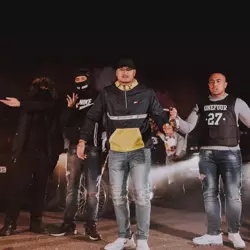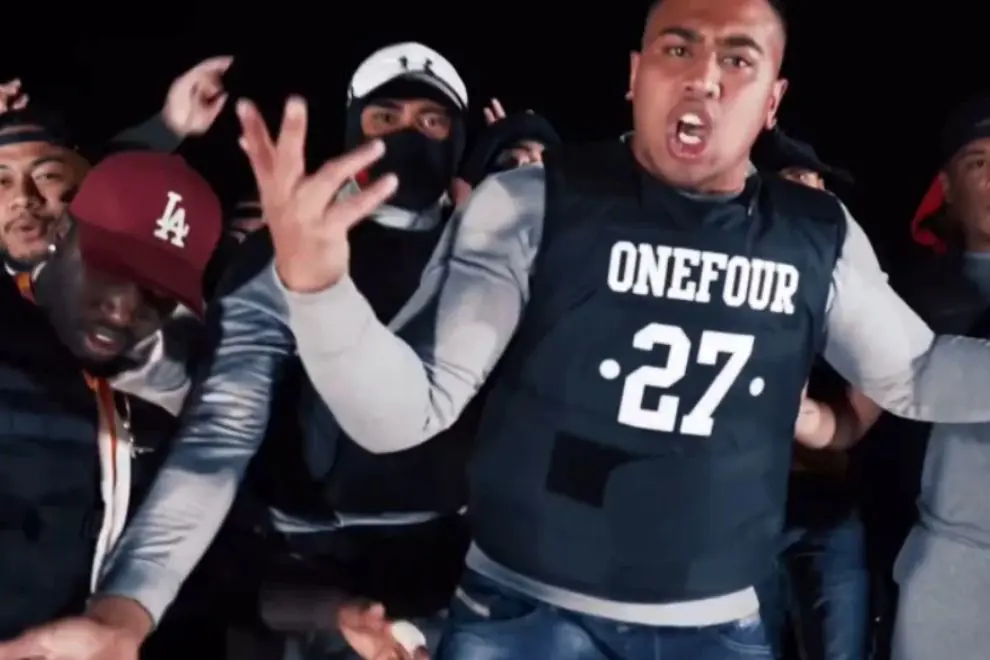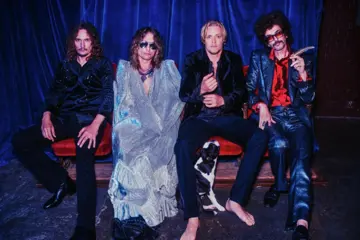 OneFour
OneFourIn the heart of Mount Druitt, a narrative of resilience and artistry has unfolded, one that is as compelling as it is contentious.
The drill rap group ONEFOUR has emerged from the streets, brandishing their stories through a raw, unfiltered lens. Their rise, however, is shadowed by a persistent antagonist – not rival artists or fleeting trends, but the New South Wales police force.
The release of their Netflix documentary, Against All Odds, brings this struggle into stark relief. It's a tale of music and ambition, yes, but also one of systemic obstruction.
The documentary’s director, Gabriel Gasparinatos, aimed to showcase the human side of the outfit, telling the ABC on the program Pacific Beat, “What people knew was this group of rappers are being affected or targeted by this task force and the business of being musicians is being impeded, but it became about the families and the impact the raids had their parents and their siblings.”
As ONEFOUR have ascended, their path has been relentlessly dogged by police interventions, with shows cancelled and their movements curtailed. This is not just a setback for the group; it sets a worrying precedent when it comes to creative freedom.
Don't miss a beat with our FREE daily newsletter
The police rationale is rooted in past incidents, citing the group's historical run-ins with the law as justification for their actions. But there's an irony here that can't be ignored: ONEFOUR's music is a lifeline out of that very cycle of crime.
Their lyrics, often painted as incendiary, are in truth a narrative escape route from the life they're so often accused of glamorising.
To hinder their shows is to undermine their escape velocity from a past they're trying to leave behind. It's a punitive measure that not only stifles their art but also their opportunity for redemption. The group's music is a conduit for change, both for themselves and for their listeners. It's a platform where the hardships and hopes of Mount Druitt's streets are given a voice, and to silence that is to silence a community.
ONEFOUR's journey is not an isolated tale. It echoes the experiences of fellow Australian rap artists like Fortay, HUSKii, and That Kid Kearve, who have also felt the heavy hand of law enforcement at pivotal moments in their careers.
The recent cancellation of HUSKii's Wollongong show, due to an exorbitant police fee, is a stark reminder of the systemic barriers that artists from the genre face.
The NSW police's 'User Pays' system, while designed to provide safety, has inadvertently become a gatekeeper, determining which voices are amplified and which are silenced. The decision to impose a $30,000 fee on HUSKii’s show is not just a financial burden; it's a symbolic gesture that undermines the very essence of artistic freedom.
It sends a chilling message that despite an artist's efforts to pivot away from a troubled past towards a brighter future through music, the shadow of their history looms large, threatening to engulf their aspirations.
The NSW police's stance poses a broader question about the role of law enforcement in relation to art. When does intervention cross the line from public safety into censorship? The constant interference in ONEFOUR's career doesn't just affect the artists; it affects the public, the culture, and the very notion of transformation through creativity.
These artists’ journeys are emblematic of a larger struggle, one where these systemic barriers are as much a part of the landscape as the streets that inspire their music. Against All Odds isn't just ONEFOUR’s story – it's an Australian story, one that challenges us to consider the cost of security and the value of artistic expression.
As we reflect on ONEFOUR's narrative and those of their peers, we must ask ourselves whether the actions of the NSW police are serving the public interest or are they perpetuating a cycle of disadvantage? Is the suppression of these artists' voices truly in service of public safety, or is it a knee-jerk reaction to a culture not fully understood?
The message from the music community is clear: let the music play, let the stories be told, and let the artists, who have chosen a path of creativity over crime, have their chance to shine. It's time to reassess the impact of policing on artistic expression and recognise that the path to a better life for these artists and their communities lies not in suppression, but in support and understanding.
In the end, ONEFOUR's battle is not just for their right to perform, but for their right to evolve, to rise 'against all odds', and to bring their community along with them. It's a narrative that deserves to be heard, unimpeded by the very forces that should be protecting our freedoms, not policing our stories.
















